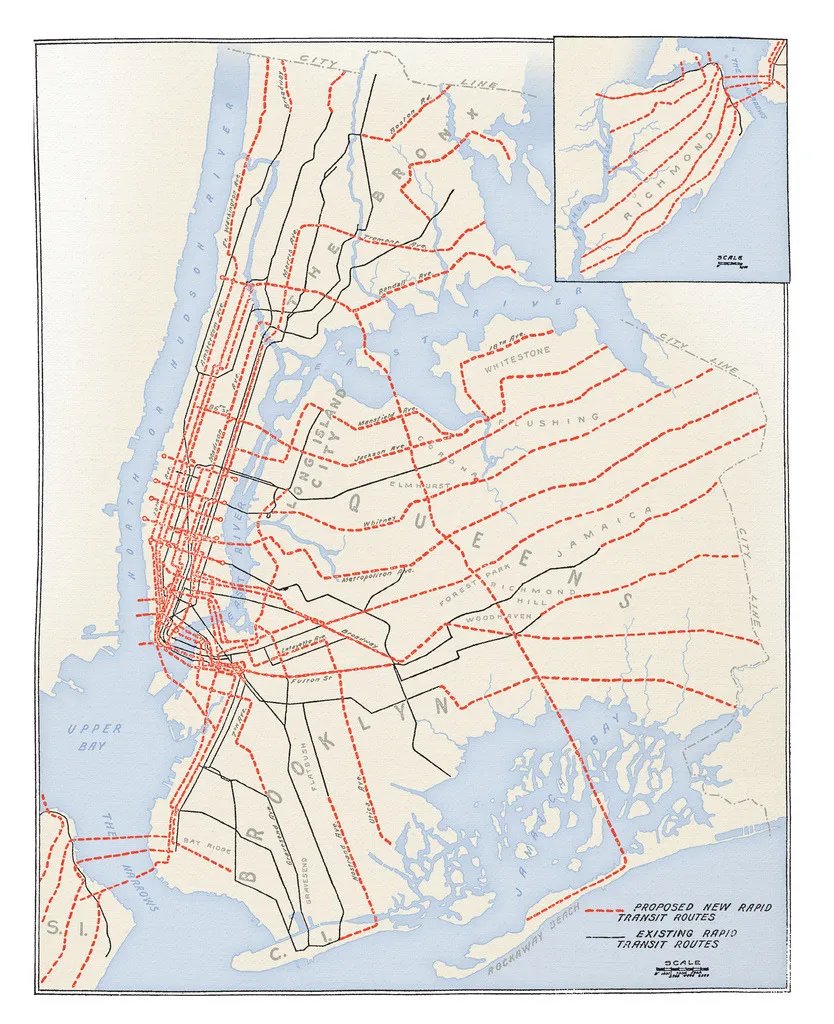
Proposed NYC subway expansion, 1920. Everything in red was proposed to be built by 1945.
Source: NYT, colorized for readability by @Chaos_Boy / @transitmap transitmap.net/ny-subway-expa…
Source: NYT, colorized for readability by @Chaos_Boy / @transitmap transitmap.net/ny-subway-expa…

Here's the original, from Oct 3, 1920. The plan was for an additional 830 miles of track over 25 years. The eventual capacity would be 5 billion passengers per year.
timesmachine.nytimes.com/timesmachine/1…
timesmachine.nytimes.com/timesmachine/1…
Said chief engineer Daniel Turner, “the growth of the city will never cease… in twenty-five years the population will be in the neighborhood of 9,000,000, and … the city must speedily provide facilities for the accommodation of an additional 2,000,000 passengers a year.”
Not only was the plan not implemented, ridership stagnated during the Depression and declined after WW2. By 1982 it had fallen under 1 billion per year, the lowest since 1917. timesmachine.nytimes.com/timesmachine/1… 

Ridership has since recovered some, but even pre-covid it was under 2 billion per year, less than the all-time high. en.wikipedia.org/wiki/History_o…
What happened? It's a complicated story and I don't totally understand it. Here's a capsule history that summarizes it in three themes: “lure of the suburbs”, “battles over control”, and “deferred maintenance / cost constraints”
bloomberg.com/news/articles/…
bloomberg.com/news/articles/…
One surprising fact from this: In the era when the subways were privately owned, the city controlled fares—and did not allow fares to increase for decades, such that “inflation meant that in 1948 riders were effectively paying less than half what they had been paying in 1904.”
There's a fascinating tale with many lessons here, I'm sure, but I don't have time to go deeper down this rabbit hole tonight.
cc @alon_levy @ericgoldwyn @danielgolliher who may be interested or have comments to add
cc @alon_levy @ericgoldwyn @danielgolliher who may be interested or have comments to add
• • •
Missing some Tweet in this thread? You can try to
force a refresh




